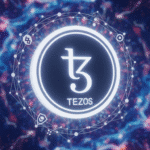Hawaii crypto firms have recently seen a significant shift in regulatory requirements, specifically regarding the state’s Money Transmitter License (MTL) mandate.
On June 30, 2020, the Hawaii Department of Commerce and Consumer Affairs (DCCA) concluded its Digital Currency Innovation Lab (DCIL). Launched in 2020, this initiative aimed to assess the landscape of digital currency activities within Hawaii and evaluate the necessary regulatory framework for crypto-related businesses.
In a pivotal regulatory crypto update, Hawaii authorities announced that digital currency companies operating within the state will no longer require a Hawaii-issued MTL to conduct transactions. This exemption was formalized in an official statement released by the DCCA on June 28, 2024.
The DCCA statement noted that “the companies will be able to continue transaction activity as an unregulated business.” However, it clarified that these firms must still comply with federal licensing and registration requirements mandated by entities such as the Financial Crimes Enforcement Network (FinCEN), Securities and Exchange Commission (SEC), and Financial Industry Regulatory Authority (FINRA).

Varied State Requirements
Navigating the regulatory landscape for MTL licensing across different states in the U.S. remains a complex endeavour for crypto firms. Requirements typically include maintaining permissible investments, a minimum net worth, a comprehensive business plan, and a robust compliance program.
For example, Alchemy Pay, a prominent crypto payment gateway, has actively engaged with regulators to secure MTL licensing in multiple states, adapting to the varied regulatory frameworks.
Consumer Awareness and Crypto Risks for Hawaii Crypto Firms
Iris Ikeda, DCIL banking commissioner, stressed the importance of consumer education regarding the risks associated with cryptocurrencies. “We urge the public to stay informed when utilizing any form of digital currency,” Ikeda emphasized.
Recent alerts from law enforcement agencies have highlighted the risks posed by emerging criminal schemes targeting cryptocurrency users. According to the news sources, the Federal Bureau of Investigation (FBI) issued warnings cautioning against fraudulent crypto recovery services and unregistered Money Services Businesses.
The Impact of Regulatory Changes on Hawaii’s Crypto Industry
The conclusion of Hawaii’s DCIL marks a significant milestone for the state’s crypto industry. By exempting firms from the MTL requirement, Hawaii aims to foster innovation while ensuring compliance with federal regulations.
For Hawaii-based crypto firms, the regulatory exemption presents both opportunities and challenges. While it streamlines operational requirements within the state, maintaining compliance with federal standards remains paramount. This includes adhering to anti-money laundering measures, consumer protection regulations, and other federal mandates.
The regulatory landscape for digital currencies continues to evolve globally. In response to Hawaii’s regulatory shift, industry players must recalibrate their compliance strategies. This may involve enhancing internal compliance frameworks and engaging proactively with federal regulators to navigate the intricate regulatory environment. As firms adjust to regulatory changes, these leading cryptocurrencies like Bitcoin (BTC) and Ethereum (ETH) continue to play a central role in transactional activities and market dynamics.
As Hawaii’s crypto industry adjusts to the regulatory exemption, stakeholders anticipate ongoing digital currency adoption and regulation developments. The BIT Journal predicts that heightened consumer awareness and education initiatives will likely play a crucial role in shaping public perception and regulatory policies moving forward.
Conclusion
The exemption of Hawaii crypto firms from the state’s Money Transmitter License requirement signifies a progressive step in regulatory policy in the latest crypto news. While this change aims to stimulate innovation and industry growth, adherence to federal regulatory standards remains a cornerstone of operational integrity. As the crypto landscape evolves, stakeholders must remain vigilant and proactive in navigating regulatory complexities to foster a sustainable and compliant ecosystem.





























